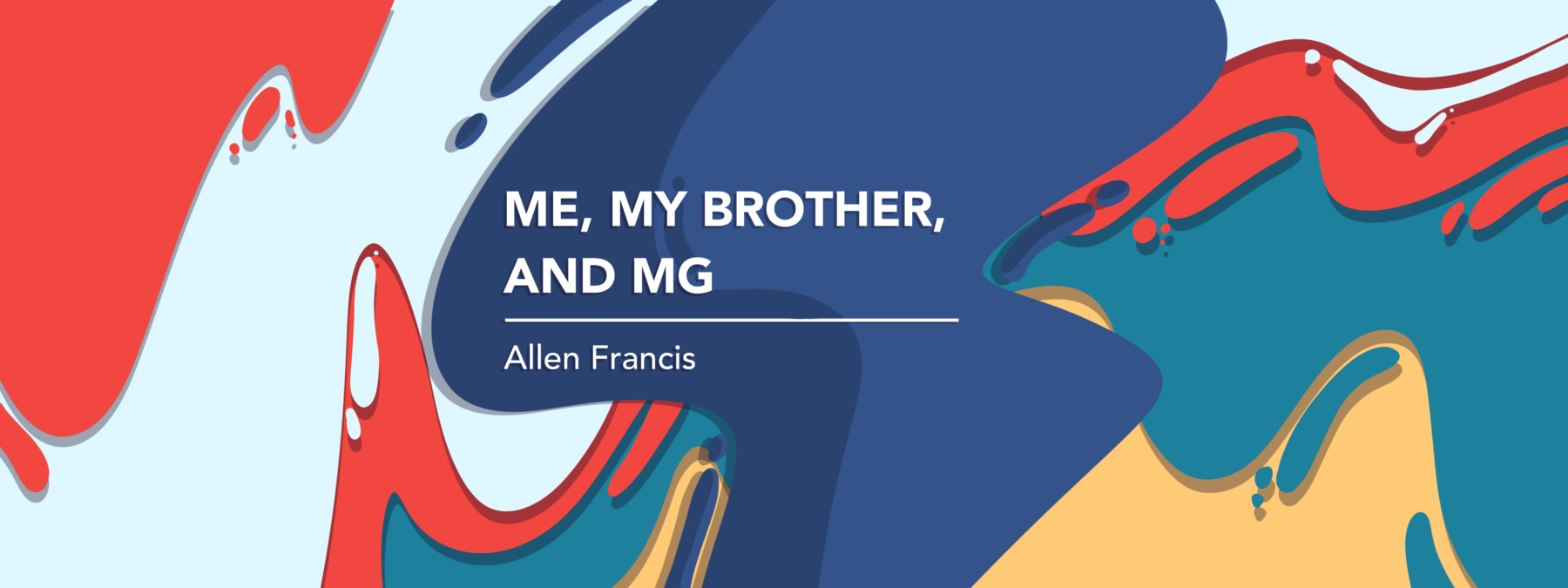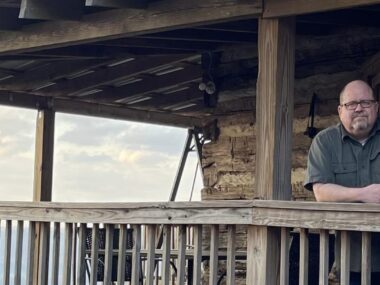MG has limited my brother’s career options, but not his identity
How has being unable to work affected my twin?
Written by |

Identity is how we define ourselves, and it can be established through nature or nurture, voluntarily or not. Part of our identity may even be shaped by the person we imagine ourselves to be or hope to become.
A vocation, career, or profession can also be a mark of identity. Retirees sometimes experience depression because, after a lifetime of work, they feel devoid of the identity that their job provided them.
Poet Maya Angelou once said, “Identity is something that you are constantly earning … a process that you must be active in.”
Being a freelance writer is my self-described identity. I’m proud of it. I left the United States in 2017 to work with a group of artists in Manila, in the Philippines, to further my small business dreams as a writer. I’ve done manual labor before and didn’t like it.
I share this thought because, in the 26 years since my twin brother, Aaron, was diagnosed with myasthenia gravis (MG), I’ve never confronted how his disabilities have limited what he can do, in life or at work. Today, Aaron can’t work at all because of MG and lives on disability benefits. How has that affected his identity?
Career and identity
Growing up, Aaron and I dreamed about our future careers. I vowed to become a writer in the third grade; I knew it was what I wanted to do. Aaron never promised to become a writer, but he did write occasionally.
As kids, we also wanted to be rappers. But our biggest dream was to start our own comic book company featuring Black characters, as diversity in comic books wasn’t common back then. We’d brainstorm ideas and dream about this company that we’d launch one day.
While I achieved my dream of writing professionally and cemented my identity as a writer, it wasn’t until I outlined and wrote this piece that I fully appreciated how MG had affected Aaron’s career path.
Before his diagnosis at age 24, Aaron was a manual laborer who worked in warehouses. He had yet to determine what he wanted to do with his life. But MG took that choice from him.
Neither of us discussed this situation until recently. For almost a quarter of a century, I’d refused to have conversations about MG with Aaron, as it was too painful. It took a long time for me to even be able to call him disabled.
Aaron’s flare-ups of muscle weakness were severe when he was in his 20s and 30s, and I’d thought that severity had subsided over time. Maybe that’s just what I’d wanted to believe. Aaron recently told me that his flare-ups are just as bad as when he was diagnosed. Thankfully, he’s able to manage them with MG medications, advice from his doctors, and rest, but he remains unable to work.
When I asked my brother what kind of work he’d consider doing now, if he were able, he responded, “Manual labor is a big no now. I would like to write like you if I could. Or perhaps something behind a desk.”
MG may limit Aaron’s career options, but it doesn’t define his identity. Aaron is a hardcore gamer, a comic book fan, and a loving brother and uncle who still wants to write comic book stories one day. Even if he’s not doing so professionally, that’s still a part of his identity.
But now, since I’ve started having these conversations with Aaron, I’ve established a new life goal: launching a comic book company with my brother. Together, we brainstorm ideas, and I write the stories. This dream is partly why I’m in Manila, trying to network with local artists.
Aaron can still become a writer if he wants to, and I’ll help him to the best of my ability. MG may limit his work options, but it doesn’t determine his identity.
Note: Myasthenia Gravis News is strictly a news and information website about the disease. It does not provide medical advice, diagnosis, or treatment. This content is not intended to be a substitute for professional medical advice, diagnosis, or treatment. Always seek the advice of your physician or other qualified health provider with any questions you may have regarding a medical condition. Never disregard professional medical advice or delay in seeking it because of something you have read on this website. The opinions expressed in this column are not those of Myasthenia Gravis News or its parent company, Bionews, and are intended to spark discussion about issues pertaining to myasthenia gravis.







Leave a comment
Fill in the required fields to post. Your email address will not be published.